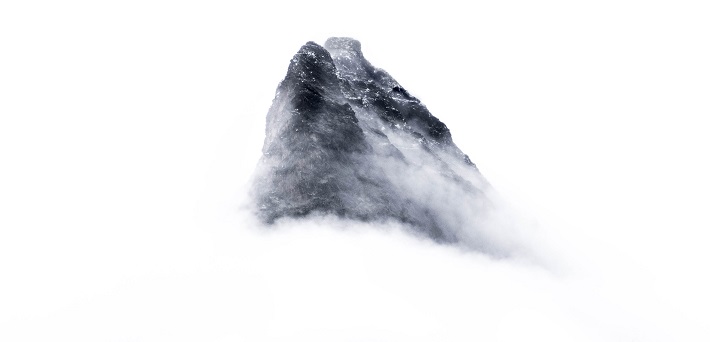Commentary on 2 Kings 2:1-12
Second Kings 2:1-12 is almost exactly half a narrative.
The entire chapter has a chiastic structure, with verses 11-12 in the very center. The event in these verses is that toward which Elijah and Elisha walk and the event from which Elisha returns alone. Typically, in a chiasm the central event is of central importance. In this passage, Elijah going up to heaven in a fiery chariot pulled by two fiery horses is certainly a high point in the narrative, but Elisha’s journeys to and from the Jordan may hold larger homiletical value. Read in this way, the narrative is as much a call story for Elisha as is the moment when Elijah called Elisha out of the field to serve him (1 Kings 19:19-21).
Journey to the Jordan
Elijah and Elisha take the journey to the Jordan River in careful stages, pausing at both Bethel and Jericho before finally reaching their destination. Each leg of the journey follows the same pattern. Before they even leave their point of origin, Elijah requests that Elisha remain behind, for the LORD has sent Elijah on to Bethel. In return, Elisha follows doggedly, swearing in the names of both the LORD and Elijah that he will not abandon his master. Upon arriving at Bethel, the prophets of the place warn Elisha that by the end of the day, the LORD will have taken his master. Elisha acknowledges this and asks for silence.
The pattern repeats as Elijah and Elisha move toward Jericho, and Elisha, having insisted on accompanying Elijah, shushes the prophets of that place who warn that Elijah will be taken by the end of the day.
At the Jordan, Elijah once more tells Elisha to stay, and Elisha once more refuses. The prophets at that place … remain at a distance. In this third repetition, the pattern breaks down, focusing our eyes on what happens next.
Up until this point in the passage, Elijah and Elisha have been identified by name or with the pronoun “they,” but in verse 7 it is “the two of them,” that haunting phrase from Genesis 22 where Abraham and his son Isaac—the two of them—walk toward the place where Abraham will sacrifice his son. Repeated in verse 8, the phrase emphasizes that it is the two of them—no more and no less—who will experience what happens next.
Crossing the Jordan
Crossing from one side of a river to another is not a particularly subtle symbolic action. Something of some importance will happen on the other side. Crossing the Jordan on dry ground with the waters parted to the side, however, recalls some rather specific biblical images. First, crossing the Jordan recalls Joshua and all of Israel crossing that same river on dry ground (Joshua 3), entering into Canaan. Elijah rolling his mantle and striking the water to divide it so they may cross over on dry ground further recalls Moses crossing the Red Sea (Exodus 14:21-27), leading the Israelites out of slavery and into freedom. What will God bring to Elijah and Elisha as they make their trek across the river become dry land? A promise? A calling?
Both are in view. When Elijah asks Elisha what he should give him, Elisha requests “a double share” of his spirit (2 Kings 2:9), better understood as the inheritance due to a firstborn son. This request may be seen as something other than presumption. Elisha had already received Elijah’s cloak and followed him, so his request does not arise out of the blue. Further, Elisha’s request signals Elisha’s understanding of their relationship. Just two verses later, he calls him “my father.”
The chariot and horsemen of Israel
As Elijah ascends in a whirlwind, a fiery chariot drawn by fiery horses appears in the foreground as Elisha remarks, “My father, my father, the chariots and horsemen of Israel.” The idiom is not well understood, the phrase occurring only here and at Elisha’s own death (2 Kings 13:14-20). It is perhaps associated with imagery of the LORD riding on the clouds, an image depicting the LORD as a warrior (Deuteronomy 33:26; Isaiah 19:1; 66:15; Habakkuk 3:8) or having other types of power (Psalm 68:33; 104:3). Surely the fire, with no discernible source, signifies God’s presence. Whatever more the imagery represents, the LORD has taken Elijah, as the prophets forewarned throughout the day, and Elisha is left alone. He retains only the vision of what has happened and Elijah’s cloak, once dropped on his shoulders when he became Elijah’s assistant (1 Kings 19:19-21) and now is his very own.
Return from the Jordan
The lectionary passage ends with Elisha mourning Elijah in the traditional fashion—by tearing his clothing. Were we to continue reading, we would see Elisha leave the Jordan River by the same route he came, this time alone. We would observe prophets at Jericho recognizing Elisha as having Elijah’s spirit (2 Kings 2:15), Elisha putting this spirit to use as he makes water safe to drink at Jericho and, less helpfully, commanding bears to maul those who mock him at Bethel.
On the festival of the Transfiguration of our Lord, a day named for the gospel reading in which Jesus is transfigured with divine light while conversing with Elijah and Moses, one might understandably focus on Elijah’s ascension in the fiery chariot as a foreshadowing of Jesus’ transfiguration. Conversely, one might choose to focus on Elisha’s transformation, itself in response to an encounter with God’s glory. Elisha leaves the experience to continue living out his divinely inspired call. Like Abraham and Isaac, like Joshua and Moses, like father Elijah, Elisha’s encounter with God has strengthened him to pick up the mantle.


February 14, 2021